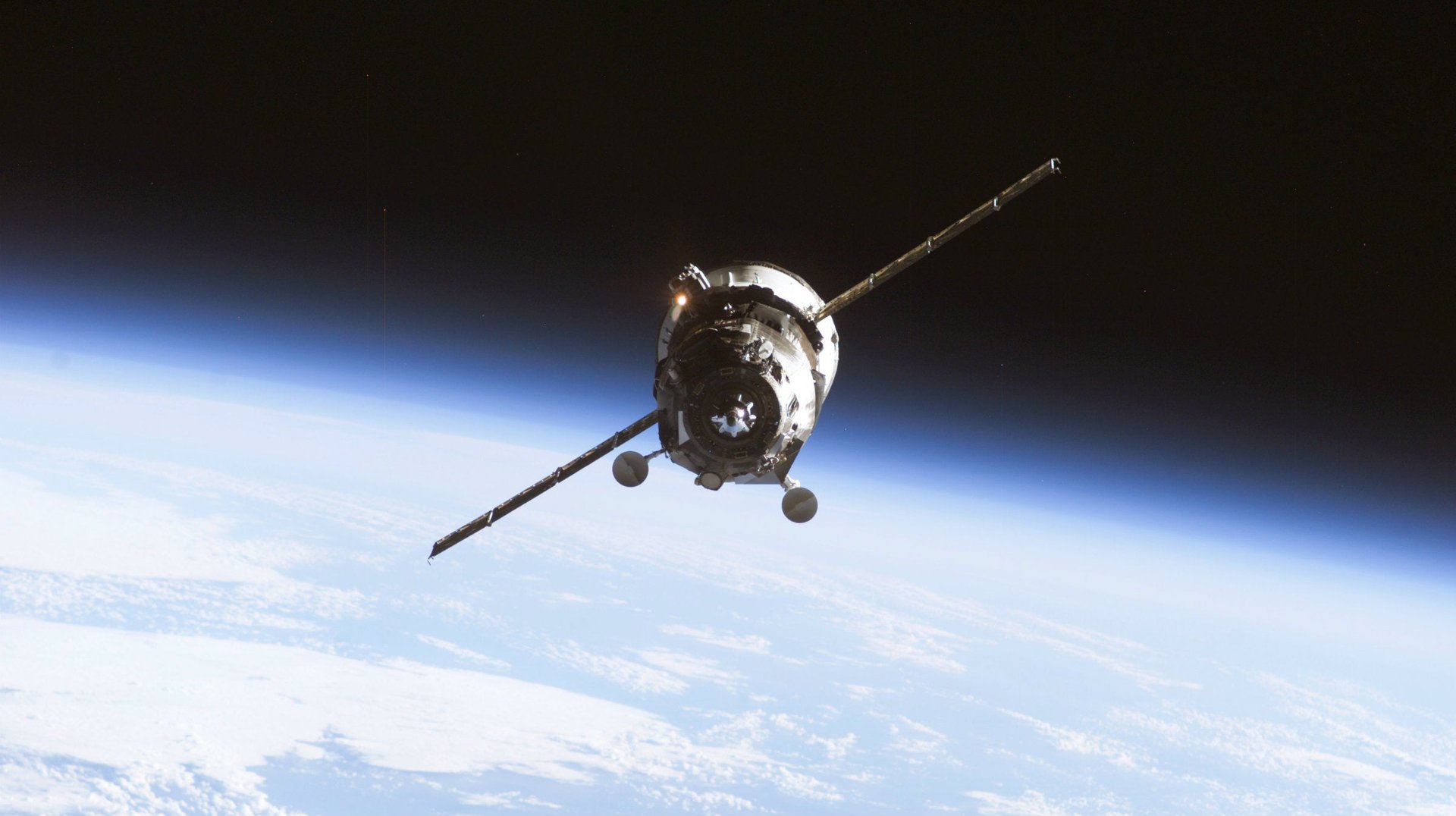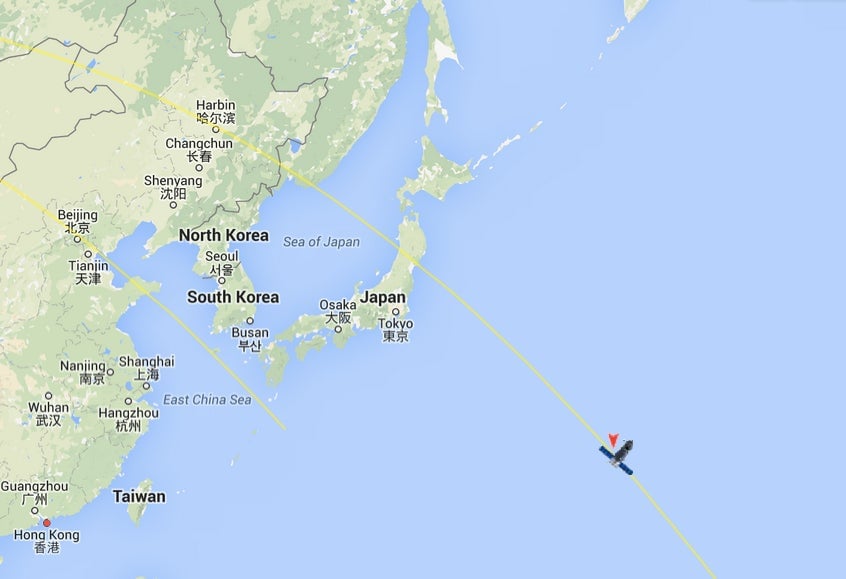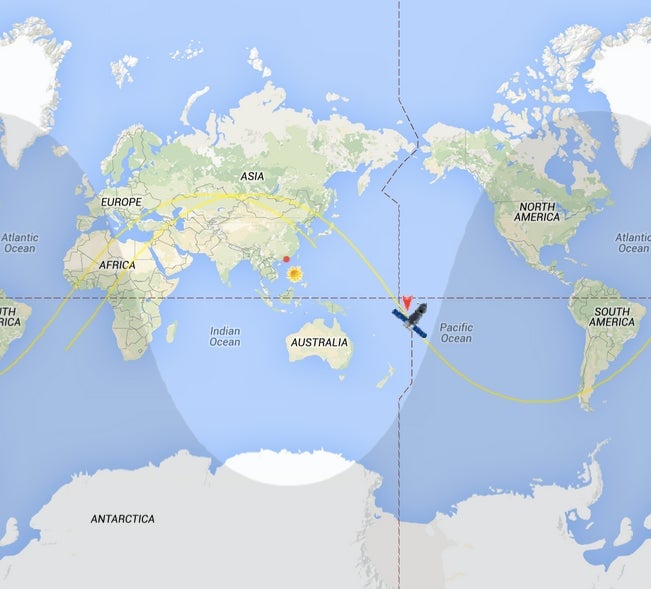You probably won’t be hit by debris as this out-of-control Russian spacecraft plummets to Earth on Friday
Update, May 8 at 4pm in Hong Kong: The Progress harmlessly fell to Earth at 2:20am UTC over the Pacific Ocean.


Update, May 8 at 4pm in Hong Kong: The Progress harmlessly fell to Earth at 2:20am UTC over the Pacific Ocean.
Here’s the bad news: An out-of-control unmanned Russian spacecraft loaded with tons of cargo for the International Space Station is expected to plummet back to Earth on Friday, and no one really knows where or when, exactly.
Things get better from there. Much of the Progress 59 spacecraft and the food and fuel it is carrying is expected to burn up as it travels through the Earth’s atmosphere, or be reduced to tiny particles that will be spread over hundreds of miles. The odds of any bits of the Progress actually landing in a populated area or hitting a person are astronomically low, scientists say.
Soon after its launch from Kazakhstan on April 28, the spaceship started spinning out of control because of “telemetry problems” related to the “deployment of navigational antennas and the pressurization of the manifolds in the propulsion system,” NASA said. A NASA video taken from the spacecraft show the earth and the sun going rapidly by the Progress as it spins out of control.
The spacecraft is slowly being pulled back to Earth. At noon in Hong Kong on May 7, it was floating over the Pacific Ocean at an altitude of just 157 kilometers (98 miles), according to N2YO, a satellite tracking site that lets you follow its travels in real-time:

The ship’s path around the globe and its reentry point are difficult to predict because of the earth’s atmosphere fluctuates with solar activity, as SpaceflightNow explains. Here’s its recent path, just after noon in Hong Kong:

As much as 3,500 pounds of the food and supplies the Progress 59 is carrying could survive re-entry, Bill Ailor, an expert on spacecraft re-entries from Aerospace Corp. told SpaceflightNow. But he said that “much of this material would itself be broken into smaller pieces and spread along a footprint several hundred miles long.”
The debris could fall anywhere between the 51st parallel north and the 51st parallel south, scientists say—a huge swathe of the globe bordered by London, northern Japan and southern Canada in the north and New Zealand and the southern tip of Chile in the south.
The latest estimates of when and where it might re-enter the earth’s atmosphere vary from off the eastern coast of Africa at 11pm UTC (8pm EDT) to an undetermined spot at 5:41am UTC.
Despite the uncertainty, scientists are say there’s little chance of being hit. As Don Kessler, a “seasoned orbital debris expert” explains in this incredibly thorough Space.com article about the situation, most items falling to Earth from space wind up in the ocean. And if not:
I would remind everyone that there are 7 billion people on Earth, so the one chance in 10,000 of any individual being harmed means there is only one chance in 70 trillion that the individual would be you. Anyone still frightened by these odds might want to play Powerball, since he or she would be 400,000 times more likely to win the Powerball jackpot than to be hit by the reentering debris.
This isn’t the first time this has happened, either. Several large, uncontrolled spacecraft, including the United States’ Skylab 85 ton space station, have fallen through the Earth’s atmosphere without incident.